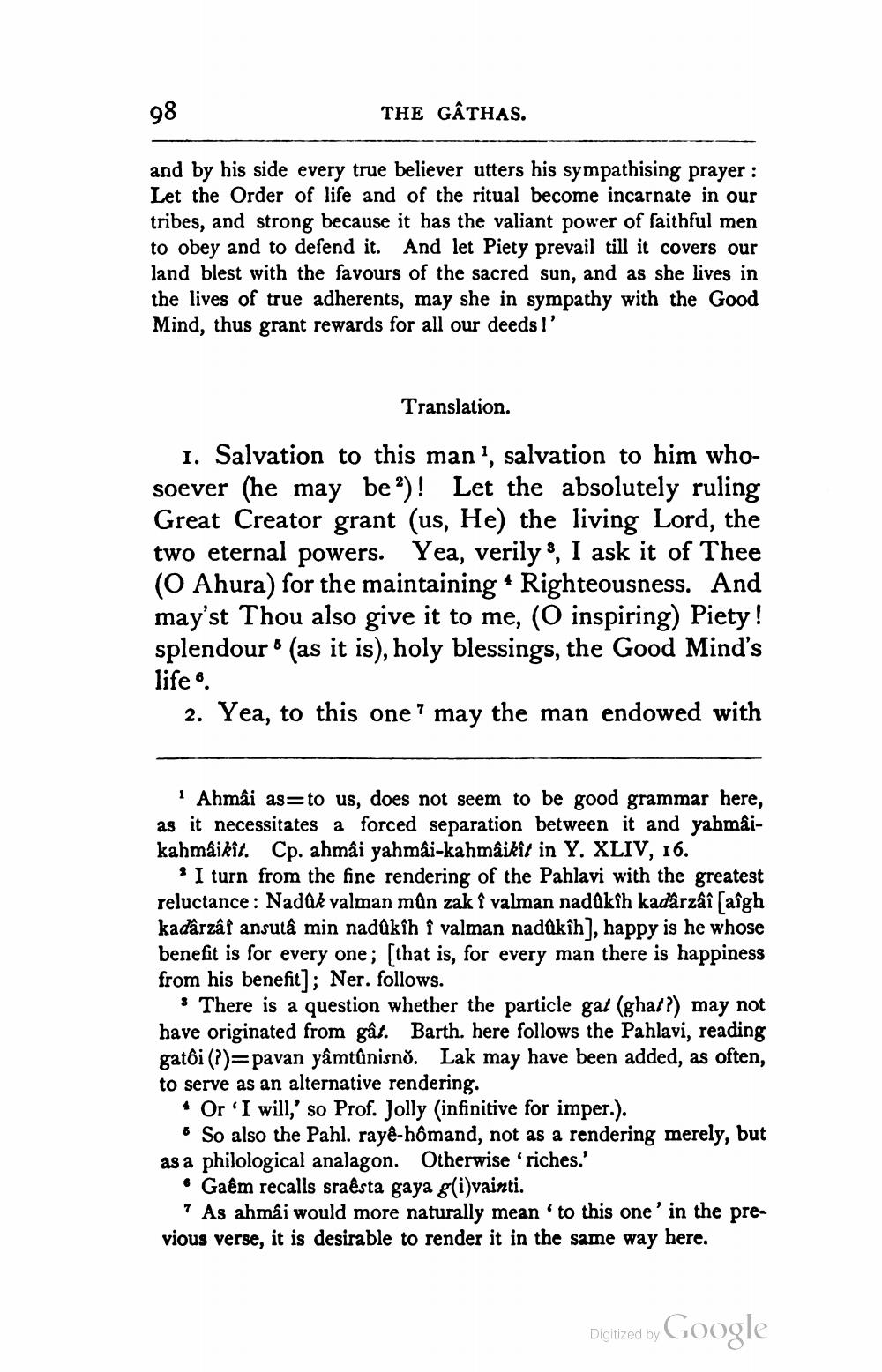________________
98
THE GÂTHAS.
and by his side every true believer utters his sympathising prayer : Let the Order of life and of the ritual become incarnate in our tribes, and strong because it has the valiant power of faithful men to obey and to defend it. And let Piety prevail till it covers our land blest with the favours of the sacred sun, and as she lives in the lives of true adherents, may she in sympathy with the Good Mind, thus grant rewards for all our deeds!'
Translation,
1. Salvation to this man', salvation to him whosoever (he may be )! Let the absolutely ruling Great Creator grant (us, He) the living Lord, the two eternal powers. Yea, verily $, I ask it of Thee (О Ahura) for the maintaining Righteousness. And may'st Thou also give it to me, (O inspiring) Piety! splendour * (as it is), holy blessings, the Good Mind's life.
2. Yea, to this one? may the man endowed with
Ahmâi as=to us, does not seem to be good grammar here, as it necessitates a forced separation between it and yahmâikahmâikit. Cp. ahmâi yahmâi-kahmâikit in Y. XLIV, 16.
s I turn from the fine rendering of the Pahlavi with the greatest reluctance: Nadak valman môn zak i valman nadakih kadar zâî saigh kadârzât ansutâ min nadůkih i valman nadůkih), happy is he whose benefit is for every one; (that is, for every man there is happiness from his benefit]; Ner. follows.
* There is a question whether the particle gat (ghat?) may not have originated from gât. Barth. here follows the Pahlavi, reading gatối (?)=pavan yâmtůnisno. Lak may have been added, as often, to serve as an alternative rendering
* Or 'I will,' so Prof. Jolly (infinitive for imper.).
o So also the Pahl. rayê-hômand, not as a rendering merely, but as a philological analagon. Otherwise 'riches.'
• Gaêm recalls sraêsta gaya g(i)vainti.
? As ahmâi would more naturally mean'to this one' in the previous verse, it is desirable to render it in the same way here.
Digitized by
Digitized by Google




